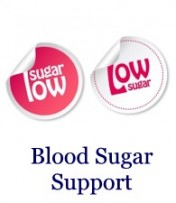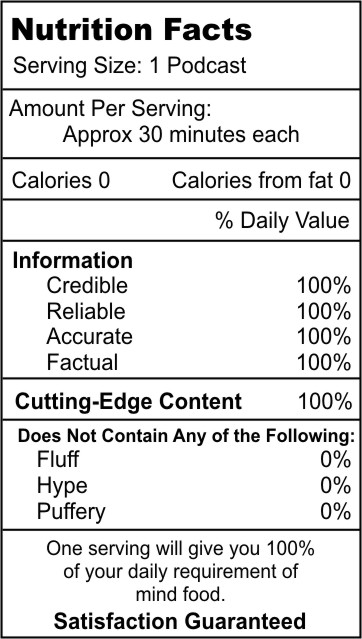Podcast: Play in new window | Download (Duration: 43:29 — 79.9MB)
The benefits of cinnamon are far reaching

The story of cinnamon as a nutritional supplement is an interesting one. I am always intrigued by the back story of how a supplement comes to be understood and recommended for its health benefits. How is it that we know that cinnamon supports healthy glucose metabolism? How does it work? How well does it work? How much should one take? Are there different forms and quality of cinnamon supplements? These are the topics I will discuss with Jolie Root.
This story began in the late 80’s and early 90’s when researchers at USDA were looking at foods that might affect blood sugar metabolism. Here are a few abstracts from some of the studies that set the stage for ongoing research.
Insulin potentiating factor and chromium content of selected foods and spices.
1990 Abstract: Biol Trace Elem Res. 1990 Mar;24(3):183-8.
“An unidentified factor that potentiates the action of insulin in glucose metabolism was investigated in selected foods and spices. Chromium content of these foods and spices was also determined. Among the selected foods, tuna fish, peanut butter, and vanilla ice cream had some insulin potentiating activity. Among the spices, apple pie spice, cinnamon, cloves, bay leaves, and turmeric potentiated insulin activity more than three-fold. Insulin potentiating activity of foods and spices did not correlate with total chromium. Spices are generally used for flavor and taste in food preparations, but cinnamon, cloves, bay leaves, and turmeric may have an additional role in glucose metabolism.”
Insulin-like biological activity of culinary and medicinal plant aqueous extracts in vitro.
2000 Abstract: J Agric Food Chem. 2000 Mar;48(3):849-52.
“To evaluate the possible effects on insulin function, 49 herb, spice, and medicinal plant extracts were tested in the insulin-dependent utilization of glucose using a rat epididymal adipocyte assay. Cinnamon was the most bioactive product followed by witch hazel, green and black teas, allspice, bay leaves, nutmeg, cloves, mushrooms, and brewer’s yeast. Some products such as Korean ginseng, flaxseed meal, and basil have been reported to be effective antidiabetic agents; however, they were only marginally active in our assay. Our technique measures direct stimulation of cellular glucose metabolism, so it may be that the active phytochemicals in these plants improve glucose metabolism via other mechanisms or that this in vitro screening is not a reliable predictor of hypoglycemic effects in vivo for some products. In summary, the positive effects of specific plant extracts on insulin activity suggest a possible role of these plants in improving glucose and insulin metabolism.”
Cinnamon use in type 2 diabetes: an updated systematic review and meta-analysis.
2013 Abstract: Ann Fam Med. 2013 Sep-Oct;11(5):452-9. doi: 10.1370/afm.1517.
“PURPOSE: We conducted an updated systematic review and meta-analysis of RCTs evaluating cinnamon’s effect on glycemia and lipid levels.
CONCLUSIONS: The consumption of cinnamon is associated with a statistically significant decrease in levels of fasting plasma glucose, total cholesterol, LDL-C, and triglyceride levels, and an increase in HDL-C levels.”
 You can find these scientific references at PubMed. There are over 1800 reference study abstracts with the search term “cinnamon”.
You can find these scientific references at PubMed. There are over 1800 reference study abstracts with the search term “cinnamon”.
 Remember that cinnamon is a food spice. What we are learning through the science is that nutrient molecules, such as the compounds in cinnamon, are nutrients that the body can utilize. Cinnamon is not a drug. It is a food that delivers certain nutrient compounds to the body. The magic is that your body can normalize when given the right set of circumstances. That is the goal of nutrition. Nourish to body to help heal itself. Your challenge is to learn about these nutrients and determine which ones make sense for you to try.
Remember that cinnamon is a food spice. What we are learning through the science is that nutrient molecules, such as the compounds in cinnamon, are nutrients that the body can utilize. Cinnamon is not a drug. It is a food that delivers certain nutrient compounds to the body. The magic is that your body can normalize when given the right set of circumstances. That is the goal of nutrition. Nourish to body to help heal itself. Your challenge is to learn about these nutrients and determine which ones make sense for you to try.
Remember also that there are different types of cinnamon so look for products from reputable companies. This is your best assurance that you will purchase a high quality product. Better choices lead to better outcomes. Commit to giving products a good consistent trial, and then evaluate your results. Blood sugar issues need to be addressed also by diet and lifestyle changes. Supplements will not make up for what you are unwilling to do for yourself. Don’t be afraid to experiment. The best products are the ones that work best for you. Patient, consistent application of health principles and consumption of healthy foods and use of high quality supplements are what’s required for healthy blood sugar levels.
About Jolie Root
Jolie is the Senior Nutritionist/Educator at Carlson Laboratories. She began as a natural products retailer who evolved into a career in education in the health sciences. She is a nutritionist and a nurse. She understands both the science and the practical application of good nutrition for health. Jolie hosts a weekly radio show called Food for Thought which is heard in New York, Florida and online.












{ 0 comments… add one now }